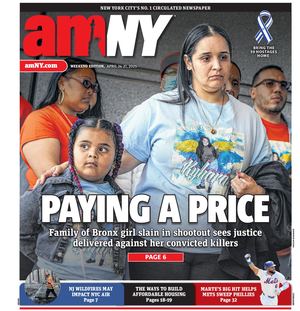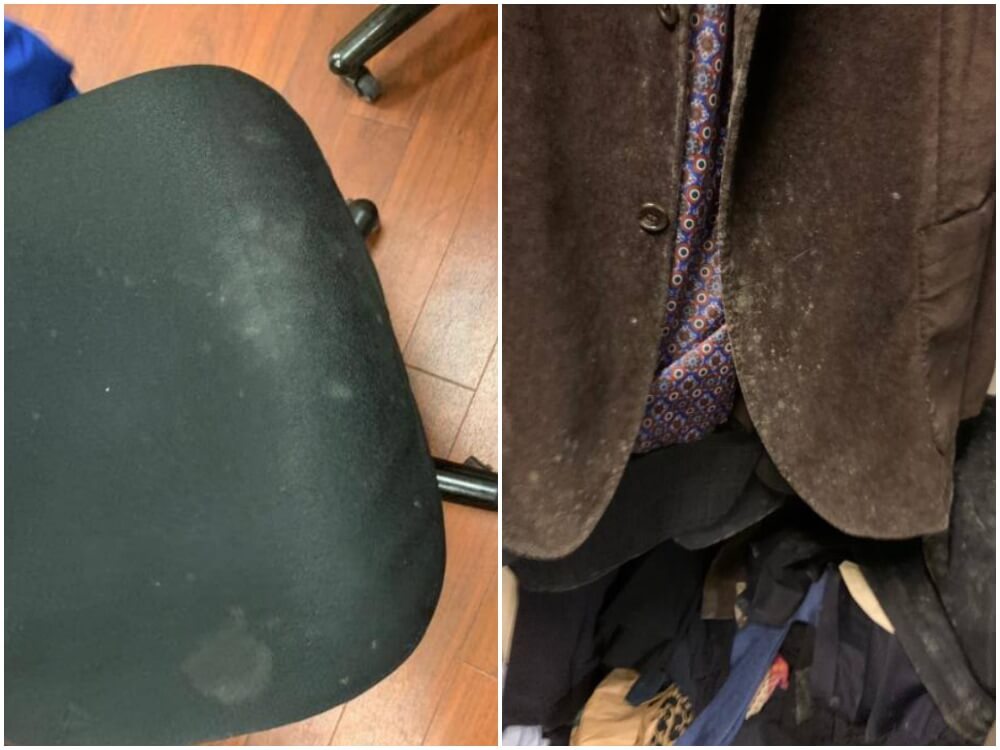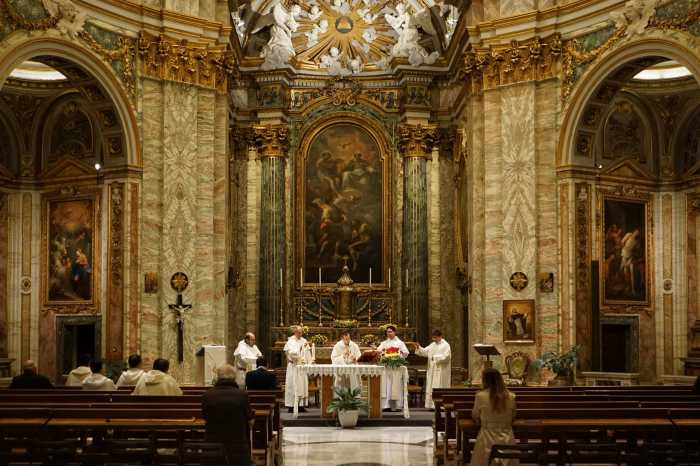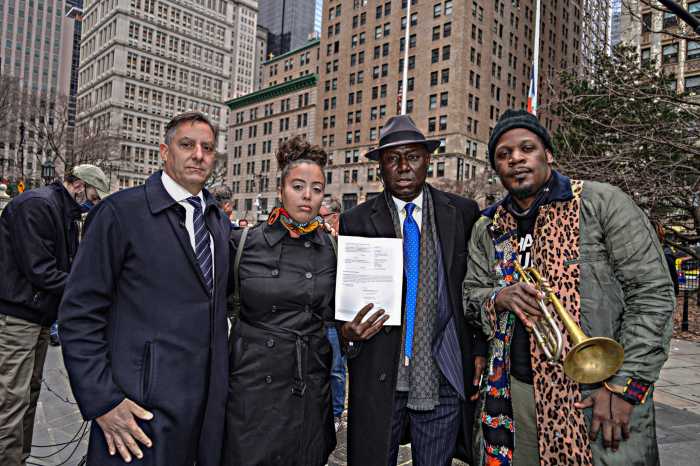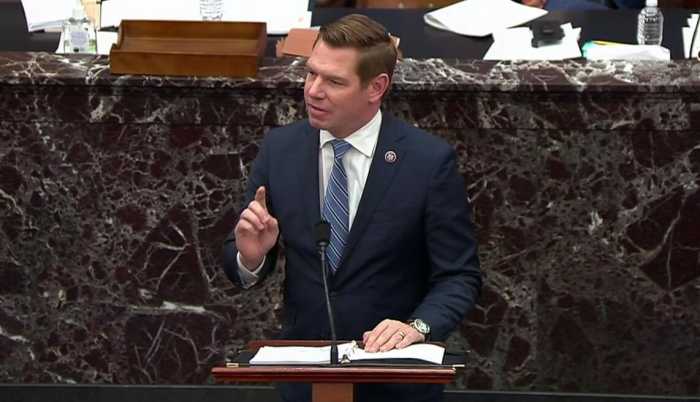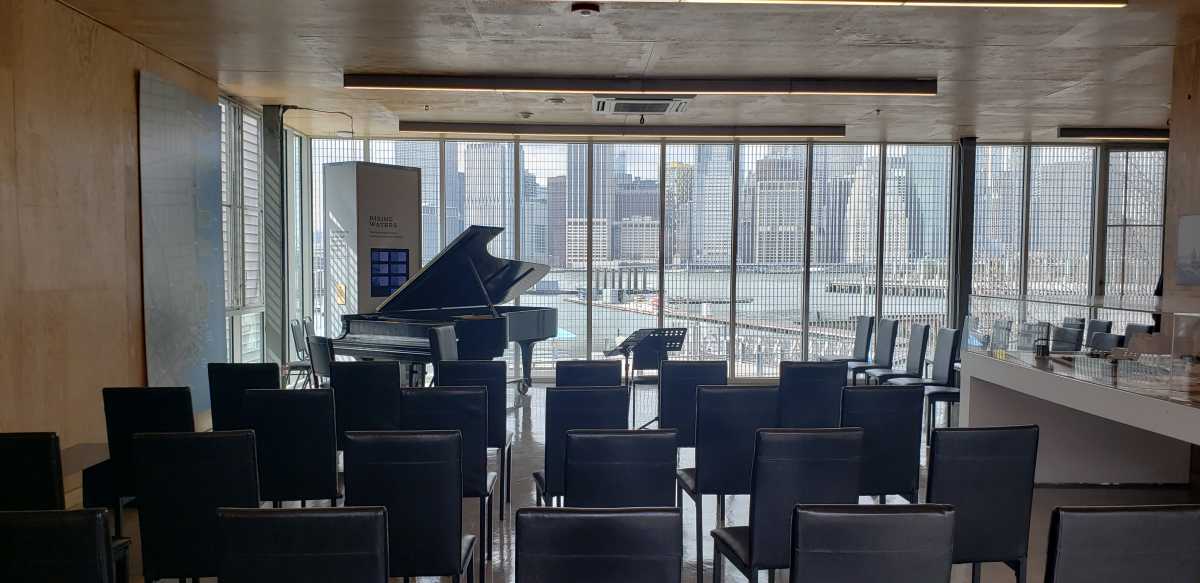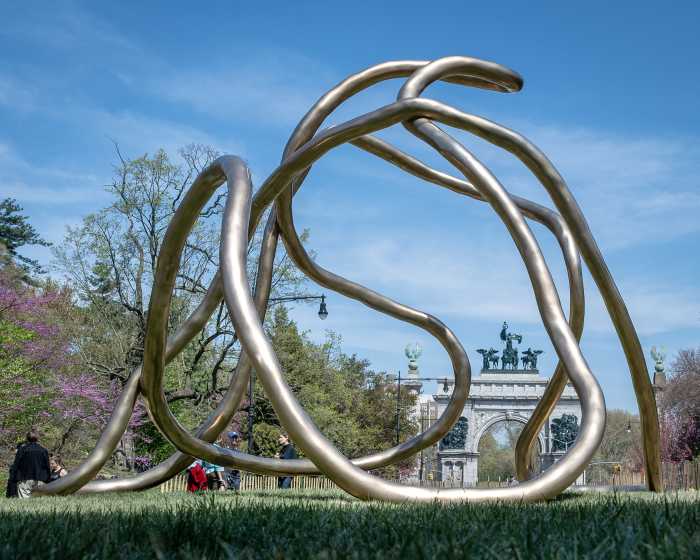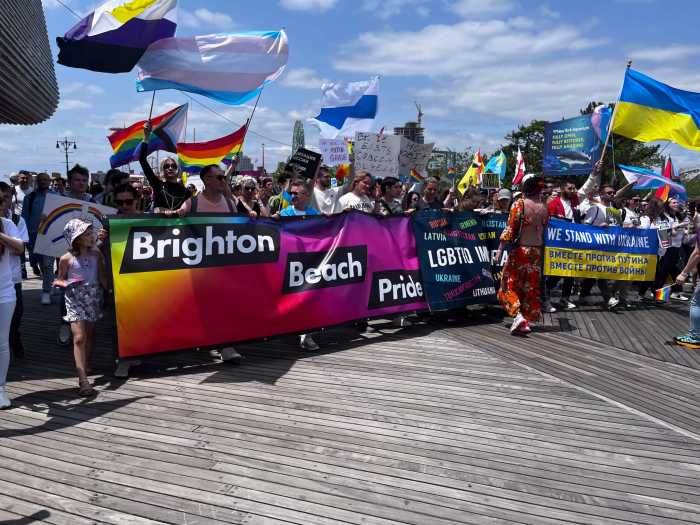The social justice law firm the Legal Aid Society sued the landlord of its Brooklyn offices Tuesday because a years-old mold infestation has rendered its Kings County headquarters uninhabitable, the nonprofit said.
The organization’s nearly 500 staffers have not been able to return to their downtown Brooklyn workplace at 111 Livingston Street for two years in a row due to the extensive spread of the fungus caused by faulty ventilation.
“For two years in a row, Legal Aid’s landlord at 111 Livingston Street in Brooklyn has placed our staff and clients in harm’s way by allowing mold contamination to spread throughout our premises,” said Legal Aid spokesperson Redmond Haskins in a statement. “Despite repeated pleas to the landlord to upgrade its outdated air conditioning and ventilation systems that have repeatedly caused these hazardous mold conditions to arise, the landlord has failed to do so.”
The group is suing their landlord for $2 million in damages and has filed to terminate their lease come June after operating their largest New York City office there since 1997.
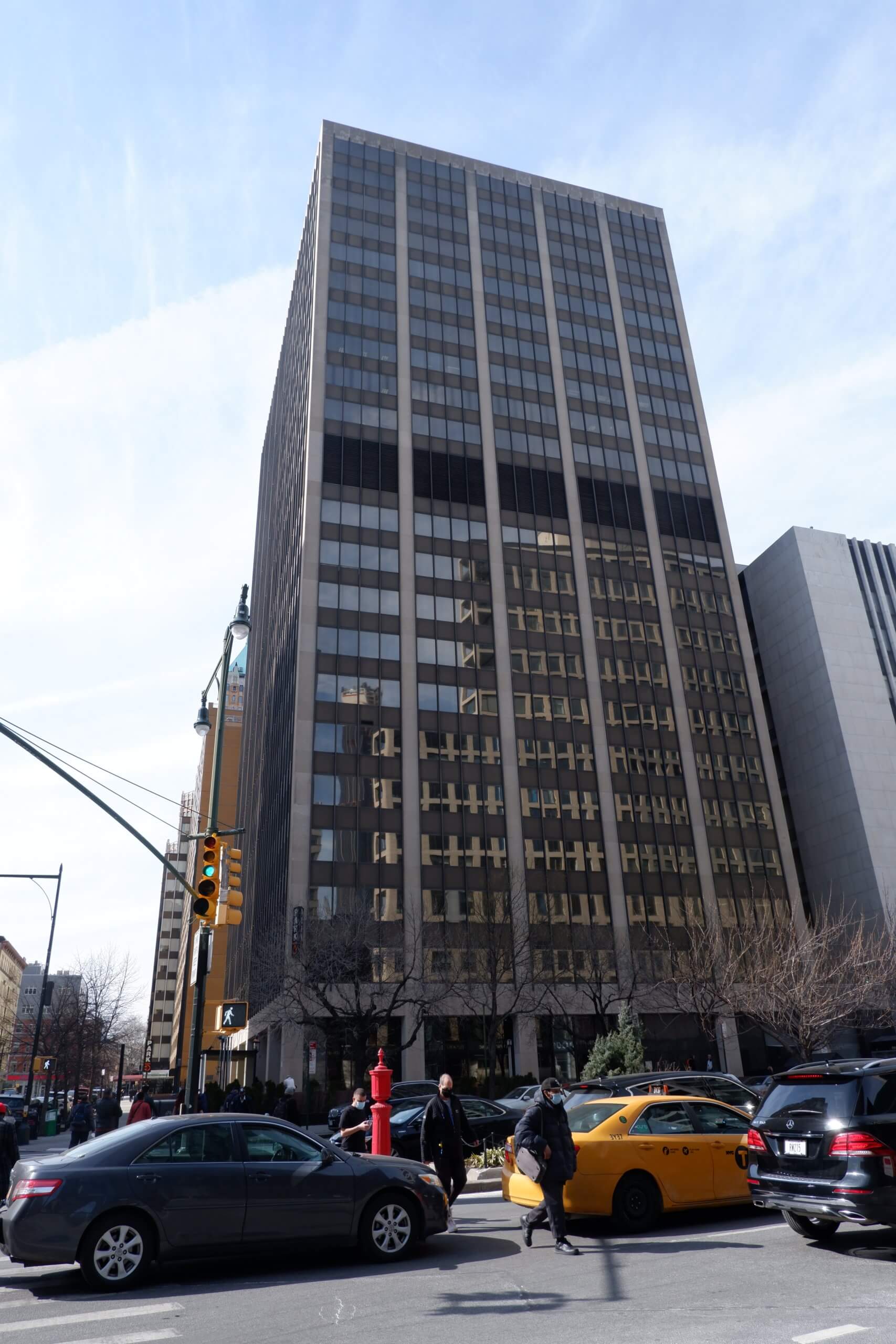
When the legal workers first returned to their offices in the summer of 2020 after working remotely due to the pandemic, they discovered the shocking spread of fungi across the six floors they occupy in the building, including on walls, floors, carpeting, computer equipment and clothes left there, according to court filings.
Legal Aid told its 460 Brooklyn workers that the premises weren’t safe, keeping them remote, and hired environmental consultants Airtek to investigate the issue.
The company found the mold to be present throughout the premises and recommended the landlord find the source and resolve the problem, and Legal Aid forwarded these findings to the building owner.
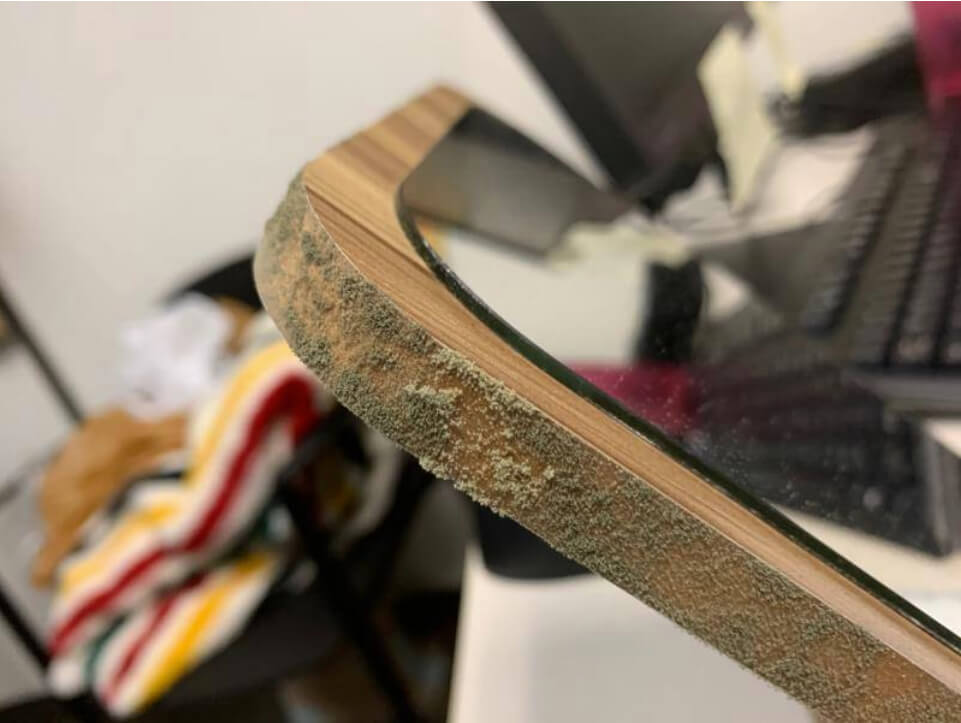
In January 2021, the landlord told the law firm that they had fully remediated the mold and that issues with the building’s HVAC system had been fixed, saying it was now safe to come back.
Legal workers returned and operated there until the toxic fluffy stuff started growing again in June, forcing them to once again abandon the building.
They re-hired Airtek, which found elevated levels of humidity and spores in the office’s air, and that the HVAC’s systems regulating air flow were not working.
After several complaints to the city’s Department of Health, a city inspector found more than 30 square feet of mold on the premises, saying it was the worst infestation he had ever seen in a commercial building, according to the complaint.
The city issued a summons to the landlord — Borough Park-based real estate firm Leser Group — to eliminate the mold condition in December, but the owner denied responsibility and failed to fix the ventilation system, the filings read.
Legal Aid estimated it incurred more than $1.7 million in costs, including hiring the consultants, moving or dumping its office equipment, renting three other temporary workspaces for staff in the borough’s central business district, and thousands of dollars to pay for dry cleaning their contaminated clothes.
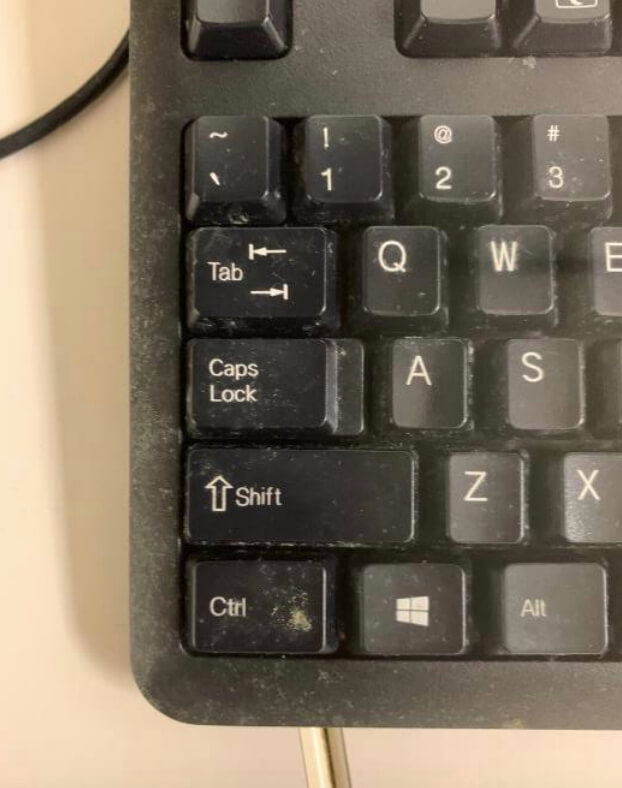
It’s also not the first issue they’ve had with the building.
In 2014 elevators started malfunctioning and were routinely out of service. Some would drop an entire floor without notice or ascend randomly and lose power, trapping passengers inside, the complaint reads.
The landlord ended up doing a five-year fix on the lifts, but the upgrades are still not fully complete, eight years later, according to Legal Aid.
The downtown Brooklyn location is crucial for the organization’s work, being close to state and federal courthouses based in that neighborhood, the company said, and its rep added they were willing to work with the owner.
“We remain ready and willing to work with the landlord once it commits to operating the building in a Class A manner that provides a safe working environment, as our lease requires and our staff and clients deserve,” said Haskins.
A Leser Group spokesperson denounced the lawsuit and said they had cleaned up the mold, while blaming Legal Aid and the pandemic for the infestation.
“It is regrettable that the Legal Aid Society, a tenant in the space without incident for over 20 years, is facing its own problems in getting its employees to return to the office, has taken to making highly inaccurate statements about the property and the lease,” said David Marcus in a statement to amNewYork Metro. “There was mold condition well over a year ago, brought about by the government’s efforts to contain the spread of COVID, compounded by Legal Aid Society’s unwillingness to follow basic hygiene protocols. The mold condition had been fully remediated as qualified experts including the City have documented.”
